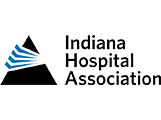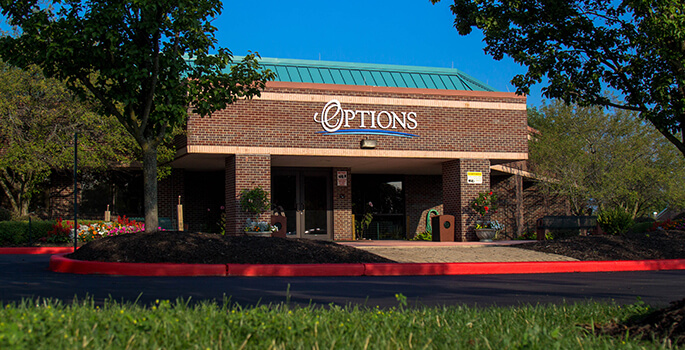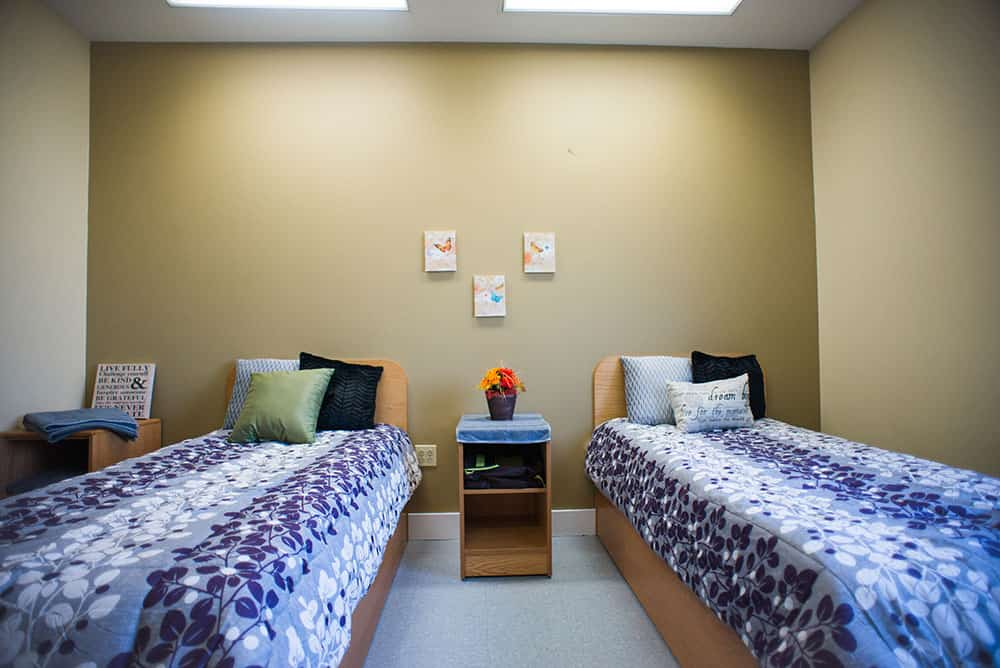Options Behavioral Health is renowned as one of Indianapolis’ leading providers of co-occurring disorders treatment. Our expert staff creates personalized treatment plans to cater to each individual’s specific needs.
The Importance of Treatment
Why professional treatment for co-occurring addiction and mental health disorders is important to achieve lasting sobriety
Individuals who have been diagnosed with one or more mental health conditions are experiencing what clinicians refer to as co-occurring disorders. And in the context of treatment, when a person is suffering from co-occurring depression and anxiety, the symptoms of both disorders must be comprehensively treated at a hospital or treatment center in order for true healing to occur.
Additionally, if a person is suffering from a substance use disorder, which is the clinical term for addiction, and one or more additional mental or behavioral health disorders, he or she is likewise suffering from co-occurring disorders.
According to the fifth edition of the Diagnostic and Statistical Manual of Mental Disorders (DSM-5), individuals who develop various forms of substance use disorders may also be at increased risk for experiencing a variety of mental health disorders, including but not limited to the following:
- Adjustment disorder
- Attention-deficit/hyperactivity disorder (ADHD)
- Bipolar disorder
- Depressive disorders
- Posttraumatic stress disorder (PTSD)
- Schizophrenia
You're Not Alone
The prevalence of co-occurring disorders
Previously referred to as dual diagnosis, co-occurring disorders are far from uncommon in the United States. The U.S. Substance Abuse and Mental Health Services Administration (SAMHSA), estimates that nearly eight million American adults struggle with co-occurring disorders.
SAMHSA has also reported that 60 to 75 percent of adolescents who have a substance use disorder are also dealing with one or more co-occurring mental health disorders. Also, studies show that adolescents who have experienced at least one major depressive episode are twice as likely to abuse alcohol or other drugs as are young people who have never struggled with depression. Professional help at a treatment center or hospital is needed to address these concerns.
Complexities of Co-Occurring Disorders
Options Behavioral Health’s co-occurring disorder treatment philosophy
There is virtually no limit to the combinations of substance use disorders, mental health disorders, and behavioral health disorders that can co-occur within the same individual, nor is there an established cause/effect relationship between types of co-occurring disorders.
For example, many individuals who develop a substance use disorder also struggle with a co-occurring depressive disorder. In some of these cases, the individual may have started to drink alcohol or abuse another drug as a means of self-medicating or numbing him or herself to the psychological pain of an undiagnosed depressive disorder. In other cases, the individual’s substance abuse and eventual addiction may have preceded the onset of the depression symptoms. In all cases, it is likely that the substance use disorder and depressive disorder will interact with each other in ways that have an increasingly harmful impact on the individual.
Continuing the example from the previous paragraph, the continued inability to control one’s substance abuse can have a detrimental impact on an individual’s quality of life, which can erode his or her psychological well-being and exacerbate symptoms of depression. Often, this can push him or her deeper into substance abuse, thus pulling the individual into a continued downward spiral of worsening symptoms and increasingly dangerous behaviors.
This example demonstrates the importance of receiving comprehensive professional treatment from a hospital or center that is prepared to provide solutions for all of the disorders that a person is experiencing. Treating one disorder while ignoring or failing to address another will make it virtually impossible for a person to achieve long-term recovery, and will significantly increase the likelihood that the individual will relapse.
Options Behavioral Health is an 84-bed, free-standing psychiatric hospital devoted to providing a full continuum of care for adolescents, ages 12 to 18, adults, and older adults who are battling the symptoms of any number of mental health concerns and co-occurring disorders. At our hospital, individuals can learn the tools they need to successfully achieve a brighter future.
Comprehensive Treatment
Comprehensive co-occurring addiction and mental health disorder treatment at Options Behavioral Health System in Indianapolis, IN
At Options Behavioral Health System, we are well aware of the necessity of providing comprehensive care at our center that identifies, addresses, and treats all of the disorders that our patients have been experiencing. When an adolescent, adult, or senior patient arrives at Options, he or she will complete a thorough assessment with an experienced professional at our center prior to starting treatment.
The information collected during this assessment will allow us to develop a comprehensive personalized plan that focuses not merely on alleviating problematic symptoms, but on providing beneficial solutions for the conditions and disorders that have caused these symptoms. Throughout the individual’s time at our hospital, we will continue to monitor his or her progress and adjust his or her personalized plan accordingly.
Many additional features of our inpatient programming at our hospital, including our wide range of therapeutic techniques and activities, our multidisciplinary treatment teams, and our around-the-clock services, ensure that adolescents and adults who have been struggling with co-occurring disorders will receive the attention and support that will lead to significant long-term benefits.
When an individual has completed his time at our hospital, he or she will leave us with a detailed discharge plan to ensure that he or she can maintain and build upon the progress that he or she made while in treatment at Options Behavioral Health System. To ensure that this plan is as beneficial as possible, this discharge planning process begins the day the individual arrives at our center, and the plan is developed throughout his or her time with us.
For adolescents and adults who have been dealing with co-occurring disorders, the discharge planning process will identify professional referrals, community-based resources, and other information related to all of the disorders for which they were treated for at Options.
Learn More
Learn more about co-occurring disorder treatment at Options Behavioral Health System in Indianapolis, IN
To learn more about how Options Behavioral Health System is uniquely prepared to provide effective, comprehensive care for adults, adolescents, and seniors who have been experiencing co-occurring disorders, please do not hesitate to contact our center at your convenience. A friendly and knowledgeable member of our team is available to take your call 24 hours a day, seven days a week.
We look forward to answering all of your questions and helping you decide if Options is the ideal place for you or your loved one.











